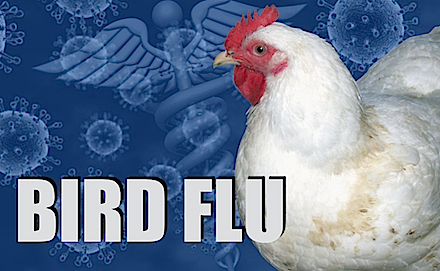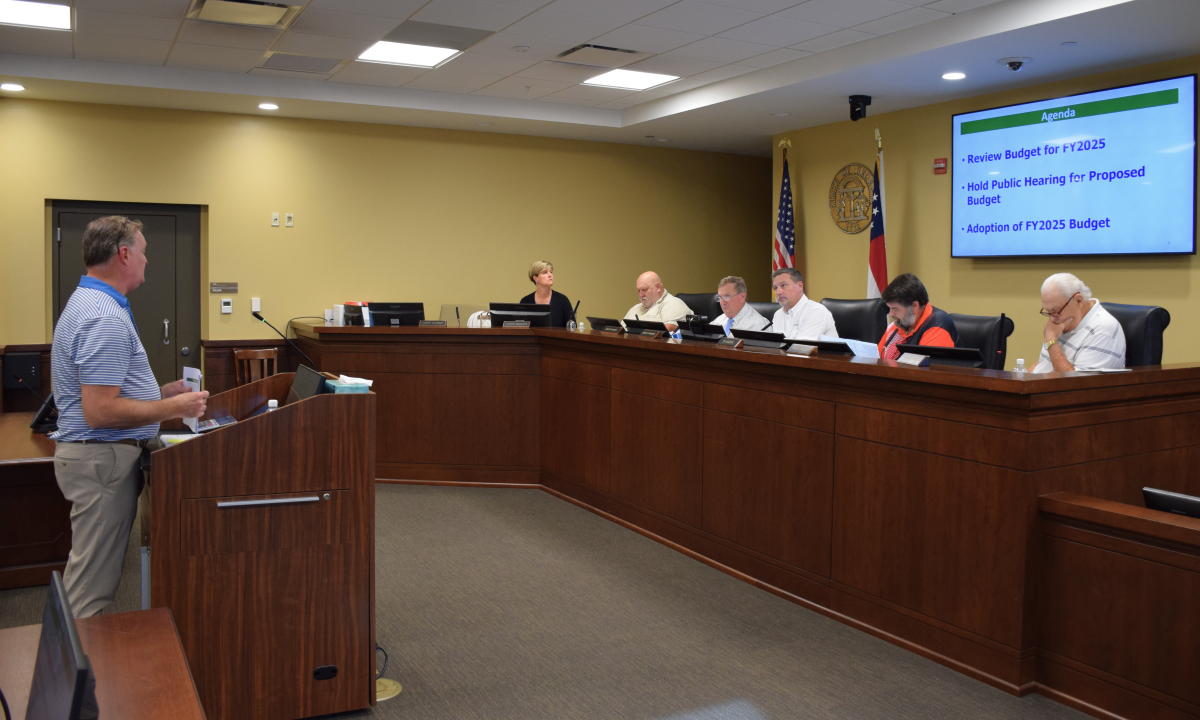
Poultry producers on alert after bird flu confirmed in Tennessee, Alabama, and Kentucky
Federal and state authorities say a case of low pathogenic avian influenza (LPAI) has been detected in a commercial poultry flock in western Kentucky.
Kentucky State Veterinarian Robert C. Stout says the National Veterinary Services Laboratory in Ames, Iowa, confirmed the presence of H7N9 LPAI in samples taken from a location in Christian County, Kentucky. The same LPAI was confirmed in a flock of chickens at a commercial poultry breeding operation in Pickens County, Alabama and in a backyard flock in Madison County, Alabama, less than 100 miles from the Georgia border.
In Tennessee, three cases of avian influenza – commonly referred to as bird flu – have been confirmed, two of those cases are considered highly pathogenic (HPAI).
Georgia AG officials urge caution
While no cases of bird flu have been found in Georgia, state agriculture officials are taking steps to minimize the risk of it spreading here. Georgia State Veterinarian Robert M. Cobb, Jr. has suspended all poultry exhibitions, shows, sales, flea markets, auction markets, swaps, and meets in the State of Georgia until further notice.
The Georgia Department of Agriculture has issued a list of recommendations for Georgia Poultry Producers and “Enthusiasts” to follow in order to further help minimize the risk of possible contamination:
- Implement STRICT BIOSECURITY on all poultry premises. Alert all company personnel, growers, farm workers and service personnel of the increased risk of Highly Pathogenic Avian Influenza (HPAI). Focus biosecurity methods on preventing any exposure to wild waterfowl or their droppings. Keep up your biosecurity AT ALL TIMES, especially as it relates to ESSENTIAL visitors and ENTRY biosecurity.
- All outdoor poultry should be moved into bio-secure housing and any contact with wild birds of any kind, especially waterfowl, their habitat, or their droppings should be avoided. If this is not possible, the Georgia Department of Agriculture should be notified.
- In addition to wild birds, prevent the introduction of Avian Influenza by other animals (rodents, snakes, dogs, etc.) and fomites (inanimate objects: buckets, boots, rakes, cages, trailers, trucks, equipment of any kind). These non-avian animals and fomites can be a vehicle to transmit the virus into your flock. Remember, BIOSECURITY – AT ALL TIMES!
- If you use rendering for dead poultry disposal, please verify that the trucks are disinfected at each pick up and that the freezer area is kept clean and clutter free. If you use rendering pick up for livestock, please do the same. If you visit a rendering plant for any livestock, clean and disinfect your vehicle before returning to your farm.
- Take the necessary precautions around any congregation points for growers or backyard owners – do not bring disease back to your poultry. All poultry owners and producers should strictly adhere to the biosecurity guidelines mentioned above. During this time, backyard flock owners should refrain from moving birds offsite or introducing new birds.
- Closely monitor all flocks for increased mortality or clinical signs consistent with Highly Pathogenic Avian Influenza (HPAI). Report any sick birds or concerns immediately. The consistent clinical sign in all the current reported cases to this point has been a marked rapid increase in mortality over several days.
- Enroll in the National Poultry Improvement Plan (NPIP). Information on NPIP can be found at https://www.gapoultrylab.org/npip/.
- Please contact the HPAI HOTLINE for reporting of any sick birds or for questions related to HPAI.
- Georgia Department of Agriculture www.ga-ai.org (855) 491-1432
- Georgia Poultry Laboratory www.gapoultrylab.org (770) 766-6850
Officials say virus poses minimal threat to humans and food supply
The Georgia Department of Agriculture says all of the cases confirmed are of North American Wild Bird origin and are not related to the Asian H7N9 virus that broke out in China in 2013.
Officials say the risk of human infection with avian influenza during poultry outbreaks is very low. The agriculture department press release states, “Avian Influenza, HPAI and LPAI, do NOT present a food safety concern. All commercial poultry are tested prior to going to market. No affected commercial poultry will enter the food chain.” For backyard poultry that does not undergo testing prior to processing, officials say proper handling and cooking will destroy the virus if its present.







